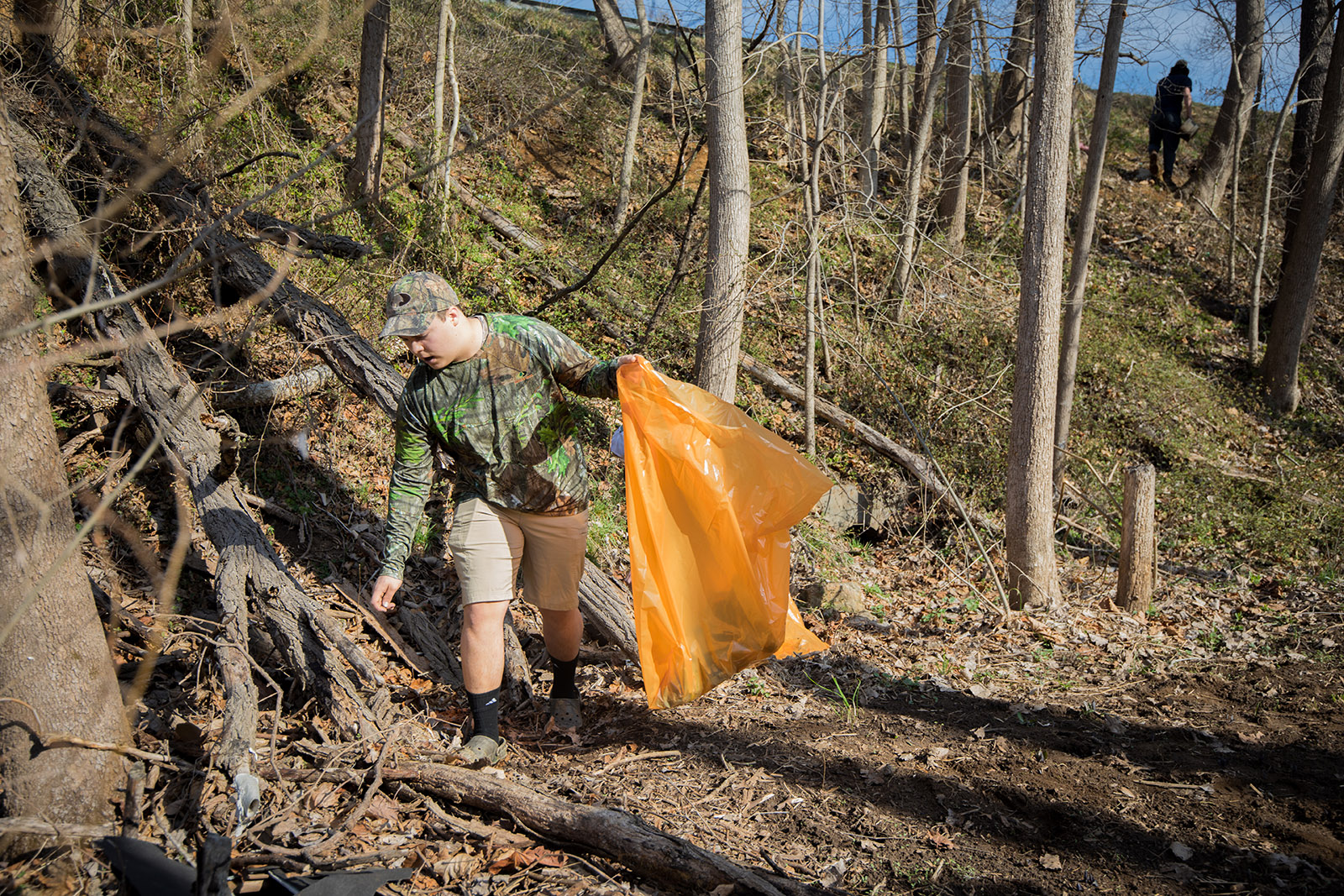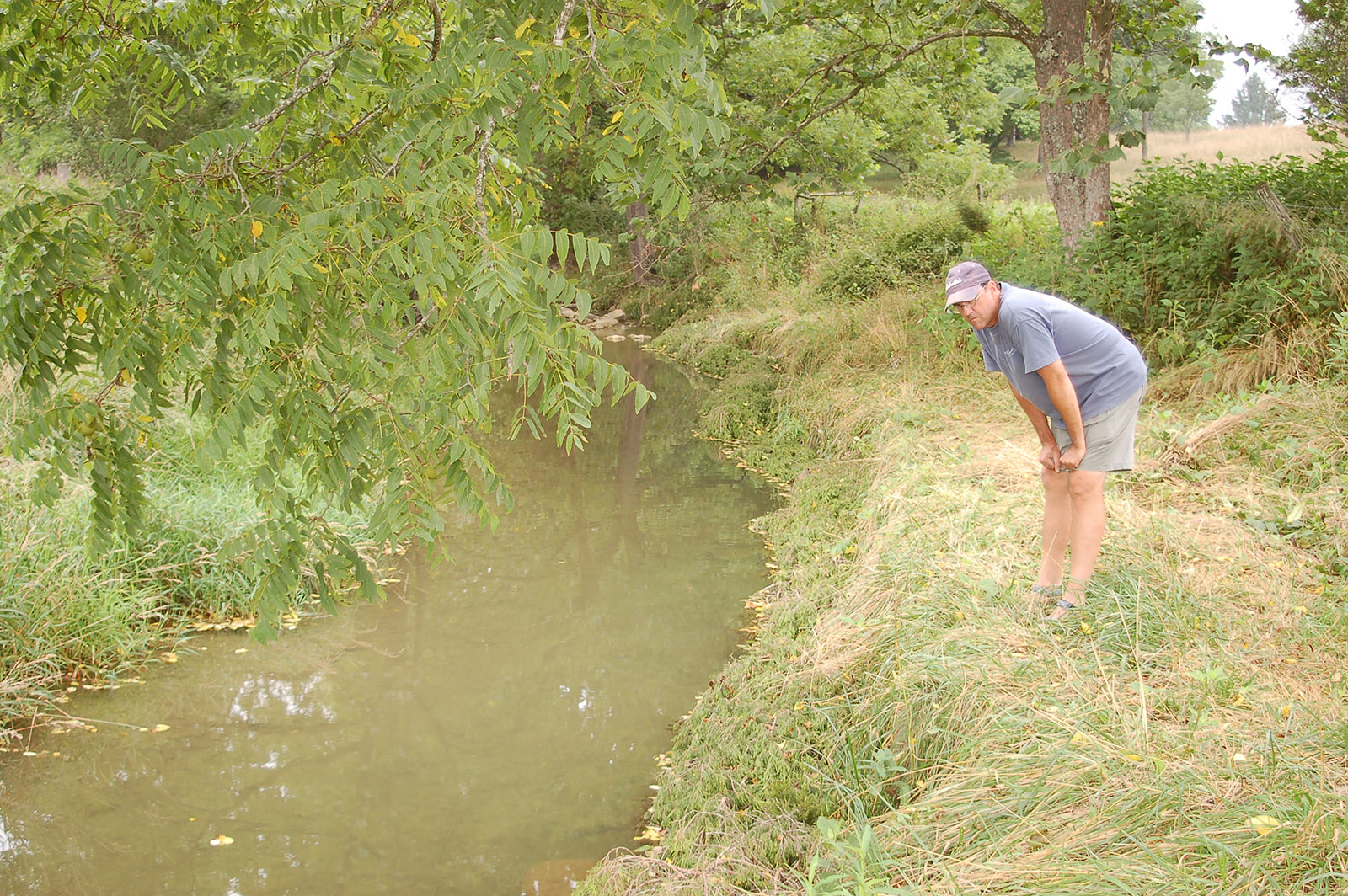By Bruce Ingram
Photos by Bruce Ingram
How can Virginia’s anglers help the Virginia Department of Wildlife Resources (DWR) fisheries biologists provide better angling in our state? Here are some suggestions from DWR staff.
“One of the things that we are really stressing now is that people should not release their baitfish or their fish in places where they have not been caught,” said Scott Smith, a regional fisheries manager based at the Forest office. “These days, because of the live well technology that exists, it’s so easy to move fish and bait from one body of water to another.”
But, continues the biologist, numerous negative, unintended consequences can occur when these illegal exchanges occur. Disease can be introduced, and native populations of gamefish and baitfish can experience population declines.
Examples of non-native species negatively impacting our lakes and rivers include the Alabama bass, blue catfish, rusty crayfish, and goldfish…just to name a few. Report suspicious and illegal activity by calling 1-800-237-5712, emailing WildCrime@dwr.virginia.gov, or texting DWRTIP plus your tip to 847411 .
Respect Landowners
Another issue involves showing a disregard for property owners.
“It’s important to remind trout fishermen to respect people’s property,” Smith said. “When landowners get tired of fishermen leaving trash behind, blocking their driveways, or leaving their gates open, then these landowners understandably post [no-trespassing signs on] their land, and anglers lose stocked fishing streams.”

Making sure to pick up all your own (and ideally others’) trash after fishing shows respect for landowners and the resources. Photo by Meghan Marchetti/DWR
Jeff Williams, a DWR regional fisheries manager based in Marion, echoed Smith’s response.
“I think the need for anglers to respect a landowner’s property is extremely important,” he said. “We have lost public access on several of our stocked trout waters due to folks not respecting landowners or their property. This includes not only gathering up trash, but also closing gates and parking in appropriate spots.”
New Clean Drain Dry Regulations
Alex McCrickard, DWR Aquatic Education Coordinator, said that a new objective of the agency is to educate the public on the need to take several steps before venturing to another watershed, stream, or lake.
“By law, anglers and boaters must now remove all aquatic vegetation from their boat, trailer, and equipment,” he says. “Also, they must remove drain plugs from bilges, and make a reasonable effort to dry their live wells, baitwells, and ballast tanks.”
Over time, McCrickard related that a rogue’s gallery of creatures have hitchhiked from state to state and watershed to watershed (think zebra mussels, which aren’t an issue currently in Virginia but have plagued other states) through wells and tanks. The Old Dominion is currently dealing with an infamous hitchhiker—the two-horned trapa is found at more than 70 sites, especially in Northern Virginia. This invasive aquatic plant species is extremely difficult and expensive to remove, and can outcompete native vegetation and negatively impact fishing.
Additionally, the aquatic education coordinator continues, state trout anglers should note that didymo, an invasive algae also known as rock snot, harms fishing in the tailraces of the Jackson, Smith, and Pound rivers. To prevent the spread of this single-celled algae, consider wearing rubber-soled wading apparel instead of felt-soled. After fishing, remove algae from your gear and clean all gear for at least one minute in a 2% solution of household bleach.
Encourage Landowners to Create/Maintain/Improve Riparian Zones
Steve Reeser, a regional fisheries manager based in Verona, said healthy riparian zones often mean healthy fisheries, whether they buffer major rivers and lakes or small streams and springs. McCrickard agrees.

Even small streams, like the upper North Fork of the Roanoke River shown here, benefit from healthy riparian zones.
“Encouraging landowners to protect their riparian zones and farmers to fence their cattle out of streams helps reduce sediment and silt in our rivers and streams,” he said. “Diverse instream habitat is essential to maintaining the biodiversity of our freshwater resources. Heavily vegetated riparian zones act as a buffer or filter and ensure the proper balance of riffles, runs, pools, and flats. Each of these instream habitats support different fish and macroinvertebrate species that are specially adapted to those conditions.
“Ultimately, the integrity of the riparian zone has a direct impact on the integrity of instream habitat, and it’s important to note that conditions upstream will have an impact on conditions lower in a watershed,” McCrickard continued. “At the end of the day, healthy brook trout streams mean healthy smallmouth rivers, and ultimately a healthier Chesapeake Bay.”
Be a Watchdog
Finally, McCrickard encouraged anglers to be the proverbial watchdog while on their favorite fishery. If you see something illegal, report it! Call 1-800-237-5712, email WildCrime@dwr.virginia.gov, or text DWRTIP plus your tip to 847411.
Also, note pollution sources (both point and nonpoint) and report fish kills, fish lesions, and any other irregularities: Virginia DEQ Hotline: 800-468-8892.


